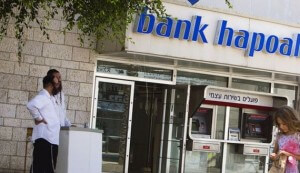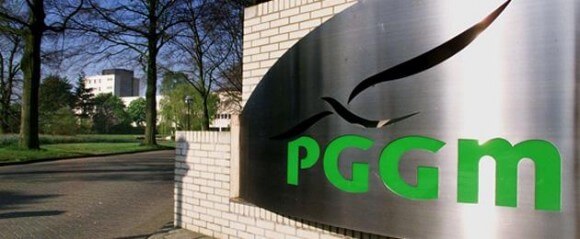Major Israeli financial institutions woke up to the news today that a Dutch pension fund has pulled out its investments because of the banks’ involvement in the occupied West Bank. The move, first reported by Haaretz‘s Barak Ravid, means that tens of millions of euros from the fund would be pulled out from five Israeli banks: Bank Leumi, Bank Hapoalim, Bank Mizrahi-Tefahot, Israel Discount Bank and the First International Bank of Israel.
The pension fund that made the announcement is PGGM, one of the biggest in the world. The banks affected have either branches in illegal settlements or finance the settlements’ construction.

In a statement, PGGM explained that the decision to divest came after engagement with the banks made clear they would not halt activities in the occupied territories. “For several years PGGM has been in dialogue with these banks,” the statement said. “The reason for this engagement was their involvement in financing Israeli settlements in the occupied Palestinian territories. This was a concern, as the settlements in the Palestinian territories are considered illegal under international humanitarian law.”
PGGM cites the International Court of Justice’s 2004 advisory opinion that West Bank settlements are in violation of the Geneva Convention.
PGGM’s “engagement” elicited responses from Israeli banks, who said that “Israeli law doesn’t allow them to cease providing service to entities connected to the settlements,” according to Haaretz.
Israeli banks are an integral part of the West Bank settlement project. The Electronic Intifada’s Asa Winstanley explains:
Israeli banks have been a BDS target for some time.
In the 2011 book that I edited with Frank Barat, Mirav Amir of Who Profits showed that “There is solid evidence of the involvement of most of the major Israeli commercial banks” in a long list of financial services to settlements. These include “special loans” made with the explicit purpose of encouraging Israeli colonization of Palestinian land in the West Bank.
Indeed, Amir said, “most Israeli banks” have branches open in settlements.
In 2010, the Israeli group Who Profits released a report on Israeli banks’ involvement in the occupation.
In its statement, PGGM added that it “continues its dialogue with a small number of other companies on the same issue and will report on progress through its regular reporting.” That could mean more divestment announcements in the future.
The Dutch pension giant’s move comes a month after a Dutch water company suspended its cooperation with Israel’s national water company because of the latter’s involvement in the occupied territories. The Palestinian-led boycott, divestment and sanctions (BDS) movement applauded that suspension in a statement. And in September, a Dutch engineering company withdrew its involvement in a sewage treatment plan because it was going to be built in occupied East Jerusalem. The Dutch government has advised businesses in its country to avoid dealing with the occupation and settlements.



I’ll say it again: the Netherlands is one of the most pro-Israeli countries in the EU (one of two that were hit by the Arab oil boycott in 1973, the other one was Portugal under its rightwing junta). It is a pretty clear indication that BDS is not going to be stopped by Israeli and zionist European bullying. Water company Vitens was bombarded with hissy fits and hyperbole from the local rightwing media, but it didn’t stop them from announcing and then confirming they were most definitely going to do the right thing.
Ben White said in this excellent article in Middle East Monitor “the rationale behind PGGM’s decision highlights the weakness of those who push a ‘settlement products only’ boycott strategy. The Dutch realised that “it would be impossible to create a firewall between its investments in Israeli banks and the banks’ activities in the territories”, and thus opted for boycott even of banks that only had “indirect” ties to settlements”. https://www.middleeastmonitor.com/blogs/politics/9115-dutch-pension-giant-boycotts-israeli-banks-g4s-faces-oecd-investigation. This Dutch giant has assets of 131 billion euros.
http://www.opensocietyfoundations.org/voices/black-pete-and-legacy-racism-netherlands
Most of the Dutch are anti-Islam. http://en.wikipedia.org/wiki/Islam_in_the_Netherlands#Controversies
PGGM refuses to create Shariah-compliant pension plans.
http://www.professionalpensions.com/global-pensions/news/1453372/muslim-savers-catered
Just on the Dutch news: ABP (Algemeen Burgerlijk Pensioenfonds), another huge pension fund, is telling the Israeli banks to disengage from the occupation, or they will divest from them as well.
This is significant. The Dutch, being the pragmatic Dutch, are looking down the road to their future liabilities being potentially indirectly involved in illegal annexation of territories.